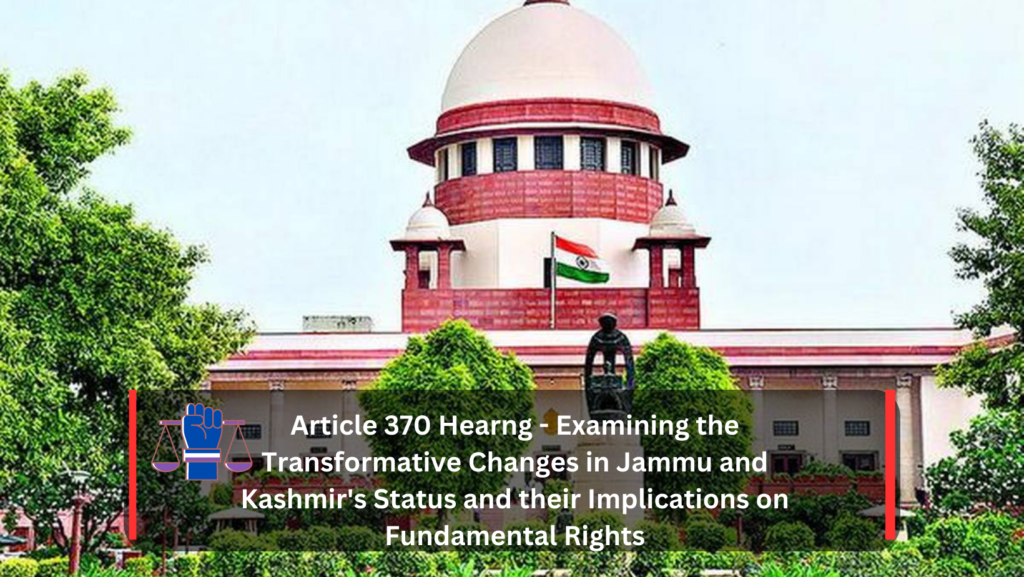In the midst of a lengthy and complex debate surrounding Article 370, a five-judge bench presided over by Chief Justice DY Chandrachud received a significant revelation. Senior advocate Rakesh Dwivedi, representing intervenor Ashwini Upadhyay, pointed out that the term ‘recommendation’ in Article 370 held a crucial meaning. According to his interpretation, this term indicated that the consent of the constituent assembly of Jammu and Kashmir was not a prerequisite for the abrogation of the article.

Article 370
A Deliberate Parliamentary Decision
Dwivedi emphasized that the abrogation of this provision should not be seen as an executive decision alone. Instead, it involved the entire Parliament, including the Members of Parliament (MPs) from Jammu and Kashmir, who were taken into confidence during this process. This collective approach aimed to ensure transparency and inclusivity in the decision-making process.
Buy best 10 books on Constitution
Comparing Constituent Assemblies
In his argument, Dwivedi highlighted a crucial distinction between the constituent assembly of Jammu and Kashmir and that of India. He noted that when the Constitution for Jammu and Kashmir was framed, their constituent assembly did not enjoy the same level of freedom as the constituent assembly of India. This difference in circumstances underscored the unique nature of the situation.

Deciphering Article 370
Deciphering Article 370(3)
Dwivedi’s interpretation of Article 370(3) further clarified the matter. According to him, the term ‘recommendation’ in Article 370(3) explicitly conveyed that the assent of the Constituent Assembly was not a mandatory requirement for the abrogation of Article 370. This legal perspective shed light on the intricacies of this constitutional provision. In summary, the ongoing debate over Article 370 involves a careful analysis of its historical context, legal interpretations, and the role of the constituent assembly in Jammu and Kashmir. Rakesh Dwivedi’s insights contribute to a more comprehensive understanding of this complex issue.

